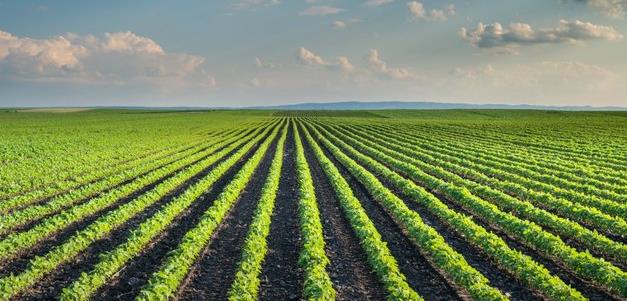Farmers try to find better ways to utilize water resources
by September 8, 2020 11:27 am 1,240 views

Finding enough water to irrigate agriculture fields will become increasingly difficult in the coming decades, and many in the ag industry are trying to develop different ways to save water.
Mike Wood uses technology on his Cross County soybean and rice farm in Cherry Valley to protect and improve water quality and help reduce water use. Computerized irrigation management, the use of soil moisture sensors, and surge valve irrigation are just a few of the tools in use as part of his participation in the Arkansas Discovery Farms program.
A virtual tour of Wood’s farm will be available free online to anyone interested in learning about how technology can improve water quality and conserve water usage. The one-hour virtual tour will be available as a Zoom webinar beginning at 10 a.m. on Thursday (Sept. 10). To register, visit here. There is no cost to participate.
Wood and his son, Derek, will discuss their farm operations. Mike Daniels, professor of soil and water, and Mike Hamilton, irrigation instructor, both with the University of Arkansas System Division of Agriculture, will discuss research at the farm, where half of a furrow-irrigated soybean field was irrigated with polytube furrow irrigation and the other half with polytube furrow irrigation with a surge valve.
“We have our edge-of-field water quality monitoring equipment set up to monitor and collect samples from all tailwater runoff from each half of the field,” said tour host Lee Riley, program assistant with the extension’s Crop, Soil & Environmental Sciences department. “This allows us to compare the surge valve side to the non-surge valve side, for tailwater and nutrient loss. We also have soil moisture sensors on each half of the field to compare water infiltration depth into the soil.”
Their data shows that adding a surge valve to the Wood’s furrow-irrigated soybeans has increased irrigation efficiency by increasing water infiltration into the soil and reducing tailwater losses, Riley said.
The tour is part of the Arkansas Soil & Water Conservation Virtual Field Trip Series, funded by the U.S. Department of Agriculture’s Natural Resources and Conservation Service and hosted by the University of Arkansas System Division of Agriculture. It is an effort of both the research and extension arms of the Division of Agriculture, the Arkansas Agricultural Experiment Station and the Cooperative Extension Service.
